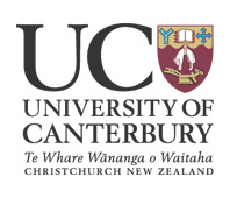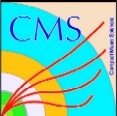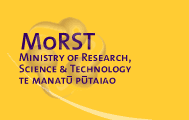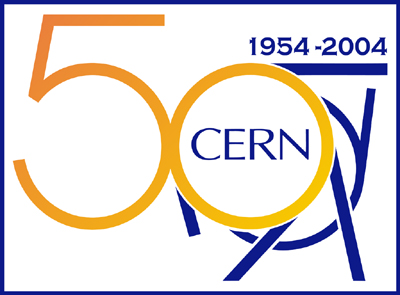






![]()
New Zealand-Australia Semiconductor Instrumentation Workshop
Wellington, New Zealand
21st -23rd June 2004
![]()
Date: Date 21st -23rd June 2004
Place:
Conference Hall, Science House, Royal Society of New Zealand, 4 Halswell Street, Thorndon, Wellington, New Zealand.
Comment: The venue is just off Murphy Street, which is an offramp of the southbound motorway. For a map go here. For a clickable map of Wellington try here
Phone:
Royal Society of New Zealand Workshop Contact person: Mr Eddie Davis
Phone number:+64-4-472 7421
Purpose:
The workshop will bring together both Australian and New Zealand as well as international researchers for the purpose of strengthening and unifying the Australasian semiconductor instrumentation research community. The workshop will focus on the development and application of semiconductor devices such as silicon strip and pixel detectors in the areas astronomy and astrophysics, medical imaging, and high-energy particle physics. Further, the workshop will be a forum for local and international researchers to encourage and develop common interests in instrumentation R&D, industrial spinoffs, and in technology transfer.
The final day of the workshop will be devoted to the development of lines of communication between the diverse areas of Australasian research community, the funding agencies and government departments in an effort to build a coherent Australasian roadmap for the development and application of silicon instrumentation.
Workshop Goals
• Provide an interdisciplinary forum for semiconductor detector technology in which Australian, New Zealand and international researchers can recognize possible synergiesand technology transfer.
• Present developments and applications of semiconductor devices, such as silicon strip, CCDs and pixel detectors, in the areas of Astronomy and Astrophysics, Medical Imaging and High-Energy Particle Physics.
• Develop lines of communication between the diverse areas of the Australian and New Zealand university and industrial research communities, Australasian funding agencies and government departments.
• Specify a coherent plan-of-action, identifying resources and requirements, for the development and application of silicon instrumentation in Australia and New Zealand through international collaboration.
Programme: The present version of the programme is to be found here. Some minor changes and additions will occur over the next few days.
Presentations:
All presentations should be in Powerpoint or PDF format and should be readable on a PC running Windows XP. Prior to the workshop, presentations can be emailed to Alick. Alternatively presentations can be transferred ( by memory stick) to the workshop presentation PC during the workshop.
Accommodation:
There are various choices for accommodation in Wellington and one can consult the Wellington accommodation guide for the full range of options. For the Workshop, an the RSNZ has arranged a reduced rate (~$NZ 130/per night) with the Portland Hotel, which is the closest hotel to the workshop venue. As most hotels will require a credit card to confirm a reservation, we ask that participants make their own accommodation reservations. If making a reservation at the Portland Hotel, please state that you a participant at the RSNZ Instrumentation Workshop in order to qualify for the reduced rate.
With the exception of the Portland Hotel, most all hotels are approximately a $12 taxi fare away from the venue.
Sample Hotel List
| Portland Hotel of Thorndon, 24 Hawkestone Street | |
| Ibis Hotel Wellington, 152 Featherston Street | |
| James Cook Hotel Grand Chancellor, 147 The Terrace | |
| West Plaza Hotel, 110-116 Wakefield Street | |
| Duxton Hotel Wellington, 170 Wakefield Street |
Getting to Wellington:
For those coming from outside New Zealand, direct flights to Wellington are possible from Australia, whereas for people coming from Europe or the United States, it may be easier to fly into Auckland or Christchurch, and then take an internal flight. Internal flights can be booked over the web with Air New Zealand (for example) see http://www.airnz.co.nz/
Participants:
It is expected that the workshop will involve a maximum 60 people, and that the workshop involve research, industrial and governmental sectors, and should be open to students and experts alike. The list of participants is to be found here.
Audience Composition
Science administrators, funding agencies
Scientists across a range of fields, post-doctoral fellows and research students
Scientists in industrial and research communities
Technology transfer experts
Studentships
To help cover cost here are a number of studentships available. Students wishing to qualify for the support should contact:
David Krofcheck (North Island, NZ)
Lou Reinisch (South Island, NZ)
Geoff Taylor (Australia)
Posters
As part of the workshop, people are encouraged to bring and present posters. The posters will be displayed at the venue, and depending on the number of posters, one or more informal poster sessions will be organised.
Workshop Registration:
There will be a registration session at the venue on Sunday from 16:00 till 18:30. For those unable to register at this time, registration will also be possible on Day One, prior to the start of the workshop. The workshop registration fee is $NZ 50 and is applicable to all participants except students. For people attending for less than the full three days, the registration fee is $NZ 20 per day.
Lunches
As part of the workshop programme, lunches for all participants will be provided for the three days of the workshop at no additional cost. Those with special dietary concerns should contact Eddie Davis in advance.
Useful Links
Organizing Committee
| Prof Tom Barnes (University of Auckland) | Dr Diether Blechschmidt (CERN) |
| Prof Phil Butler (University of Canterbury) | Mr Eddie Davis (Royal Society of New Zealand) |
| Dr John Ellis (CERN) | Dr David Krofcheck (University of Auckland) |
| Dr Rob Lewis (Monash University) | Dr Alick Macpherson (CERN, Paul Scherrer Institut) |
| Dr Lou Reinisch (University of Canterbury) | Prof Geoff Taylor (University of Melbourne) |
| Dr Emmanuel Tsesmelis (CERN) | Dr Steve Thompson (Royal Society of New Zealand) |
![]()
This page was last edited on 16/06/04 17:08 by the site manager